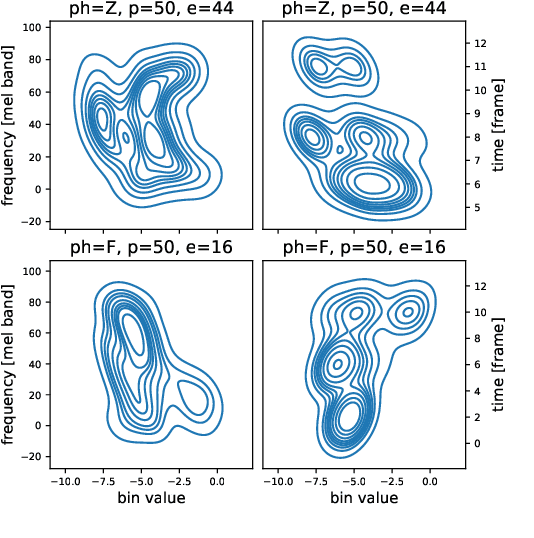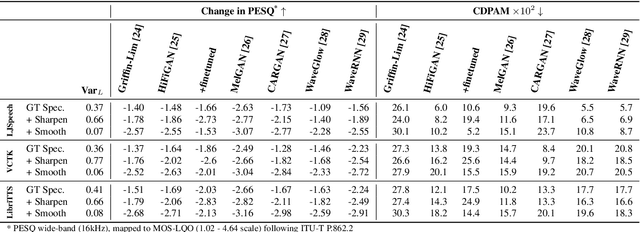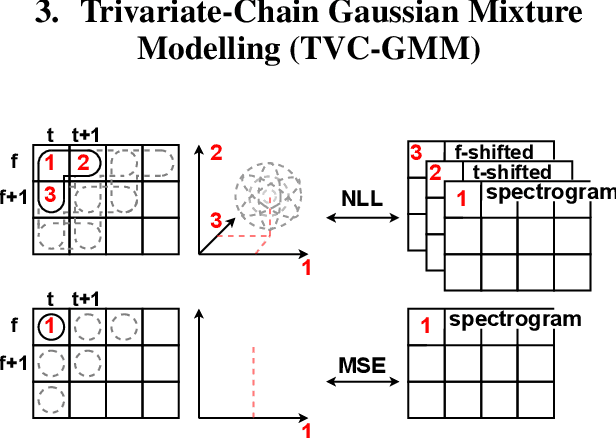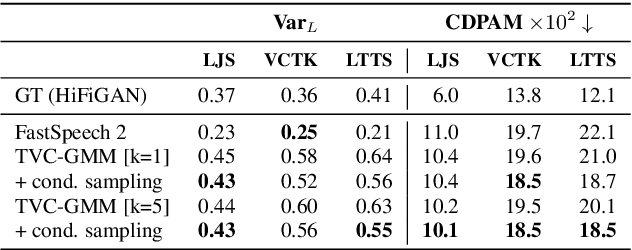Towards Robust FastSpeech 2 by Modelling Residual Multimodality
Paper and Code
Jun 02, 2023



State-of-the-art non-autoregressive text-to-speech (TTS) models based on FastSpeech 2 can efficiently synthesise high-fidelity and natural speech. For expressive speech datasets however, we observe characteristic audio distortions. We demonstrate that such artefacts are introduced to the vocoder reconstruction by over-smooth mel-spectrogram predictions, which are induced by the choice of mean-squared-error (MSE) loss for training the mel-spectrogram decoder. With MSE loss FastSpeech 2 is limited to learn conditional averages of the training distribution, which might not lie close to a natural sample if the distribution still appears multimodal after all conditioning signals. To alleviate this problem, we introduce TVC-GMM, a mixture model of Trivariate-Chain Gaussian distributions, to model the residual multimodality. TVC-GMM reduces spectrogram smoothness and improves perceptual audio quality in particular for expressive datasets as shown by both objective and subjective evaluation.
 Add to Chrome
Add to Chrome Add to Firefox
Add to Firefox Add to Edge
Add to Edge